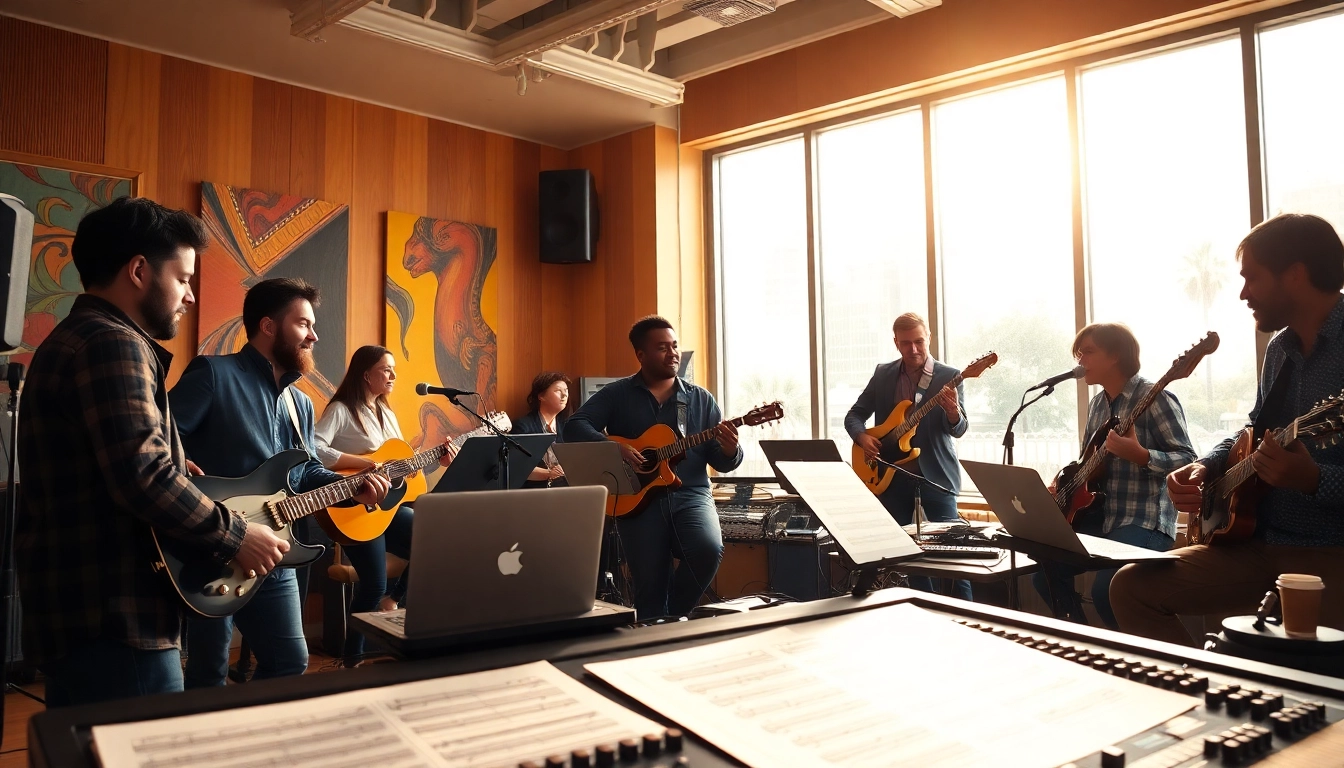Understanding Music Pitching
What is Music Pitching?
Music pitching refers to the strategic process of presenting a song or an album to industry professionals such as playlist curators, record labels, music bloggers, and influencers. The aim is to gain exposure and generate interest in your music. Pitching typically involves crafting a compelling narrative around the music, highlighting its unique aspects while providing essential information about the artist and the release. This practice has become increasingly important in the age of streaming, where exposure can make or break an artist’s career.
Importance of Effective Pitching
The music industry is flooded with talent, with countless artists vying for attention. Effective pitching is crucial for cutting through the noise and ensuring that your music reaches potential fans and industry gatekeepers. A well-executed pitch increases the chances of your songs being featured on popular playlists, reviewed by key media outlets, or even played on the radio. Music pitching not only helps to expand your fan base, but it also plays a pivotal role in establishing your brand as an artist.
Common Mistakes to Avoid
While pitching music can seem straightforward, there are several pitfalls that artists can fall into:
- Generic Pitches: Sending out a one-size-fits-all pitch can signal that you are not genuinely invested in your music or the curator’s work.
- Ignoring Submission Guidelines: Each platform or curator often has specific requirements. Failing to adhere to these can result in immediate disqualification.
- Lack of Personalization: Failing to address curators by name or not mentioning why your music fits their style can come across as insincere.
- Submitting Too Late: Timing can be critical; ensure you submit your pitch well in advance of your release date.
Preparing Your Music for Pitching
Polishing Your Tracks
The first step in music pitching is ensuring that your tracks are as polished as possible. This means professional mixing and mastering, as quality production sets you apart from amateur recordings. A well-produced track demonstrates professionalism and dedication to your craft. It’s important to listen to your music from a listener’s perspective and ask for feedback before your pitch. Aim for high-quality audio files (like WAV or high-bitrate MP3), and ensure they are tagged correctly with your details, as curators will appreciate the ease of use.
Creating a Compelling Press Kit
A press kit is your opportunity to provide context around your music and to engage curators and industry figures. Your press kit should include:
- Artist Bio: A short yet informative biography that explains who you are, your musical background, and your influences.
- Music Links: Links to your tracks, preferably on streaming platforms that allow curators to listen easily.
- Cover Art: High-resolution cover art that is eye-catching and reflective of your music’s style.
- Quotes/Reviews: Any prior media accolades or quotes that validate your work and offer social proof.
Researching Target Playlists and Curators
Your music will only be heard if you pitch to the right people. Research is a crucial part of this phase. Look for playlists that align with your genre and style, and focus on those that accept independent submissions. Use tools like music pitching websites to find contact information and guidelines for curators. Tools such as SubmitHub can also streamline your submission process by allowing you to maintain a single profile and pitch to multiple curators simultaneously. Take time to understand each playlist’s aesthetic and any specific requirements they might have.
Strategies for Successful Music Pitching
Tailoring Pitches to Curators
A personalized pitch is more likely to resonate with curators. Rather than sending out mass submissions, take the time to craft individual pitches for each curator or platform. Mention specific aspects of their playlists or previous features that resonate with your music. Explain why your track fits their style and what listeners might gain from it. This personal touch shows that you’ve done your homework and are genuinely interested in a potential collaboration.
Timing Your Submissions
Timing is a critical factor in music pitching. Plan your pitch around the release date of your single or album. Research indicates that submitting your music approximately 7 to 10 days prior to its release can maximize visibility, allowing curators ample time to consider your track for their playlists and potentially feature it in their promotional cycles. Additionally, pay attention to seasonal trends—certain genres may perform better during specific times of the year.
Utilizing Music Promotion Platforms
There are various platforms dedicated to music promotion that simplify the pitching process. Services such as Amuse, SubmitHub, and Daily Playlists can help you pitch your music to a target audience effectively. These platforms often feature a range of curators from blogs to major playlists, allowing you to maintain an organized approach to pitching. Each platform may have its own nuances, so be sure to familiarize yourself with their rules and options for maximizing your reach.
Leveraging Social Media in Your Pitching Effort
Building a Following on Social Platforms
Social media serves as a fast and effective way to build a fanbase and reach out to curators and influencers. Engaging content, regular updates, and a consistent brand presence can make a significant impact on your visibility. Utilize platforms such as Instagram, TikTok, and Twitter to share behind-the-scenes glimpses into your music-making process, snippets of your tracks, or live performances. This not only attracts potential listeners but also captures the attention of curators who perceive an engaged artist as an asset.
Engaging with Influencers and Curators
Build genuine relationships with music influencers and playlist curators by engaging with their content consistently. Share their posts, comment thoughtfully, and even send personalized messages to express your admiration for their work. When they see you interacting with their content and expressing your support, they are more likely to be receptive when you do approach them with your music. Establishing rapport before pitching can lead to more successful outcomes.
Showcasing Your Music on Online Channels
In addition to traditional pitching, showcasing your music on various online channels can create a buzz around your release. Platforms like YouTube, SoundCloud, and Bandcamp provide fantastic opportunities to share your music. Consider creating video content that explores the narratives behind your songs or even a lyric video to accompany your releases. Hosting live listening sessions or Q&A’s can enhance engagement and build anticipation around your music.
Measuring the Success of Your Pitches
Tracking Playlists and Engagement
Once you’ve started pitching your music, monitoring its success is crucial. Use analytics tools available on streaming platforms to track your songs’ performance. Pay attention to metrics like playlist placements, engagements, saves, and shares. These data points can give you insight into what resonates with listeners and how you might adjust your future pitches to improve your reach. Additionally, keeping track of playlist placements and curator responses can help you refine your strategy over time.
Gathering Feedback from Curators
Feedback is a goldmine for any artist seeking to improve their craft and pitching strategy. Don’t hesitate to reach out to curators who have provided feedback, whether it was positive or negative. Sometimes, constructive criticism can help you hone your music, press kits, or pitching techniques. Also, after a successful pitch, send a thank-you note; this simple gesture can lead to lasting relationships.
Adjusting Strategies Based on Results
Music pitching is not a “one-size-fits-all” formula; it’s an evolving process. Regularly evaluate your results and be open to adjusting your strategies based on feedback and analytics. Experiment with different pitch formats, types of music, and targeted audiences to see what works best for you. Adapting to feedback and changing your approach will help you develop a more effective and personalized pitching strategy over time.




